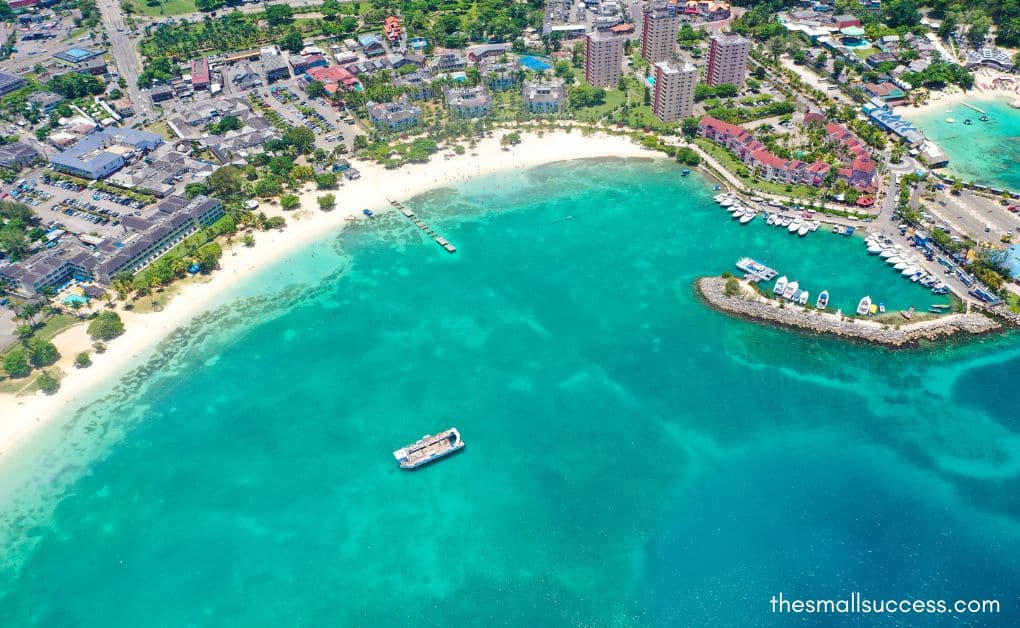Jamaica, known for its turquoise waters, reggae rhythms, and laid-back lifestyle, is increasingly on the radar for expats, digital nomads, and retirees. But before packing your bags, one key question stands out: What are the real living expenses in Jamaica? Whether you're considering a move or planning an extended stay, understanding the cost of living can help you budget wisely and avoid surprises. This guide breaks down housing, food, transportation, utilities, and more to give you a clear picture of life on this Caribbean island.
Cost of Living in Jamaica: Overview
- Rent (1BR Apartment): $350 – $800
- Groceries: $150 – $400
- Utilities: $50 – $150
- Transportation: $30 – $100
- Internet & Phone: $50 – $80
- Dining Out: $60 – $150
- Entertainment: $50 – $100
- Total (Est.): $750 – $1,800
Housing: Rent and Real Estate
City Living vs Coastal Towns
-
Kingston (the capital): Higher rent, especially in expat-favored neighborhoods like New Kingston.
-
Montego Bay and Ocho Rios: Tourist-friendly but often more expensive near the beach.
-
Smaller towns (e.g., Mandeville, Negril): Cheaper and more relaxed.
-
1-bedroom apartment in city center: $600 – $800
-
1-bedroom outside city center: $350 – $500
-
3-bedroom home (ideal for families): $800 – $1,500
Want to own instead? Property prices vary widely, but you can expect to pay $100,000–$250,000+ USD for a modest home in a safe area.
Food and Groceries
Jamaica offers a mix of local markets and Western-style supermarkets.
- Solo budget: $150 – $250
- Family of 4: $400 – $600
Sample Prices:
- Rice (1kg): $1.50
- Bread loaf: $1.30
- Chicken breast (1kg): $4.50
- Milk (1L): $1.60
- Fresh produce (bananas, tomatoes, onions): very affordable at local markets
Tip: Shop at Coronation Market in Kingston or local farmers' markets to save more.
Dining Out and Local Eats
- Local meals at street vendors: $3 – $7
- Mid-range restaurant meal: $10 – $20
- Fancy dining (3-course): $40+
Try iconic dishes like jerk chicken, ackee and saltfish, or curried goat. For budget-friendly meals, stick to local “cook shops” or lunch spots frequented by Jamaicans.
Utilities and Internet
Utilities tend to be moderate, but air conditioning can spike your electric bill in hotter months.
- Electricity, water, garbage: $50 – $150 depending on usage
- Internet (fiber or DSL): $45 – $70
- Mobile phone plan with data: $15 – $30
Providers like Digicel and FLOW dominate the market.
Transportation Costs
Jamaica doesn’t have a subway or train system, but route taxis and minibuses are widely used.
- Route taxi (shared): $1 – $3 per ride
- Bus: $1
- Gasoline: ~$1.25 per liter
- Renting a car: $35 – $60 per day
Most expats rent or buy a car if staying long-term, especially in rural or beach areas.
Health Insurance and Medical Costs
Public healthcare is available but often crowded. Most expats opt for private clinics or international health insurance.
- Doctor visit (private): $30 – $70
- International health insurance: $50 – $150/month depending on coverage
You can also check providers like Cigna Global for expat-specific plans.
Education (for Families)
If you have kids, factor in private international schools, especially in Kingston and Montego Bay.
- Tuition per year: $3,000 – $10,000 USD
- Public schools: free but not typically recommended for expats
Safety and Lifestyle Considerations
While Jamaica is beautiful, it does face challenges with crime in certain urban areas, especially at night. Stick to safer neighborhoods, ask locals for advice, and avoid walking alone after dark in unfamiliar places. In terms of lifestyle, Jamaica offers:
- Year-round tropical climate ☀️
- World-class beaches and hiking
- Rich culture, music, and food
- Friendly, relaxed pace of life
FAQ
Q: Is Jamaica cheap or expensive to live in? A: Jamaica is relatively affordable, especially if you live like a local. However, imported goods and expat lifestyles can increase costs. Q: How much money do you need to live comfortably in Jamaica? A: A single person can live comfortably on $1,200–$1,500/month. Families may need $2,000–$3,000+ depending on housing and schooling choices. Q: Can foreigners buy property in Jamaica? A: Yes. Foreigners can buy property without restrictions, but legal processes and fees apply. Q: Is Jamaica safe for expats? A: Most expats live safely, especially in gated communities or quieter towns. Like any country, safety depends on location and awareness. Q: Can I live in Jamaica on $1,000 a month? A: It’s possible, especially in rural areas with minimal luxuries. However, most expats report needing at least $1,200–$1,500/month for comfort.
Conclusion
Jamaica offers a tropical lifestyle, rich culture, and relatively affordable living for those who plan wisely. Your total cost will depend on your location, preferences, and how much you’re willing to embrace the local way of life. If you dream of island living with a side of reggae and rum, Jamaica might just be the place. But as always, visit first, research neighborhoods, and do a trial stay to truly understand the costs before making the leap.

